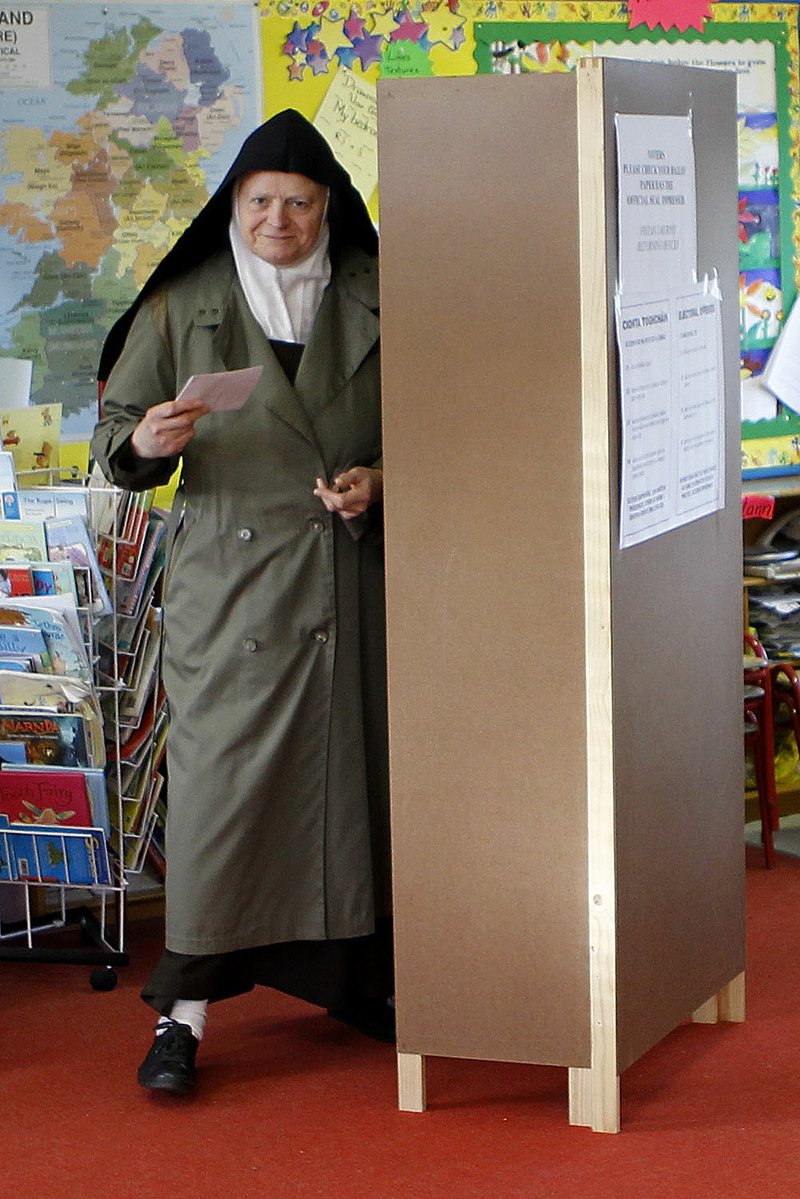LONDON — Voters in Ireland went to the polls Friday in an election that all indicators show will wreak vengeance on the country’s ruling party, Fianna Fail, which has been in power for 61 of the past 79 years.
Public anger over a decimated economy and an international financial bailout has put the party on course for the worst electoral defeat in its history. Analysts predict Fianna Fail will struggle to hold onto even a third of the parliamentary seats it won last time when final results become clear late today or early Sunday.
The expected realignment of Ireland’s political landscape is due to its economic implosion over the past three years, when a large real-estate bubble popped, over-leveraged banks went into free fall and the socalled Celtic Tiger growth stopped dead in its tracks.
The Irish now face an unemployment rate of more than 13 percent and a budget deficit equal to nearly one-third of gross domestic product. A series of austerity plans, each more painful than the previous, has shrunk incomes and slashed public-sector jobs. An estimated 1,000 residents are leaving Ireland every week, reviving the specter of mass emigration.
Fianna Fail, whose latest stretch in government began in 1997, has borne most of the blame.
“It’s expected to lose somewhere in the region of 40 to 50 seats in Parliament. In a Parliament of just 166 seats, this is very significant,” said Theresa Reidy, a professor at University College Cork in southern Ireland. “We’ve never seen a political party lose that many.”
Analysts expect a new ruling coalition composed of the main opposition party, Fine Gael, and the Labor Party. The leader of Fine Gael, a former teacher named Enda Kenny, is the front-runner to become prime minister.
The election is being closely watched in Europe because of its potential effect on the $113 billion bailout Dublin negotiated in November with the European Union and the International Monetary Fund. Ireland became the second nation inseven months, after Greece, to be rescued in an attempt to shore up the euro.
Opinion polls show that many Irish find the terms of the bailout package, including more austerity measures and a high interest rate on the loans, too harsh.
They also see it as an unacceptable loss of sovereignty for a nation that fought a long and bloody campaign for independence from the British throne. That perception, too, has cost Fianna Fail.
“Its byline is ‘Fianna Fail, the republican party.’ It’s alwayshad a very strong republican base,” Reidy said. “So the arrival of the IMF and the perceived loss of sovereignty has eroded a lot of their support base.”
Public anger against the bailout is so deep that the three biggest parties, including Fianna Fail itself, have all made renegotiation of the package part of their campaigns.
But none is expected to push for drastic changes - only some tinkering around the edges, such as lowering the interest rate or lengthening the period over which loans must be paid back.
In some ways, analysts said, a coalition of Fine Gael and Labor won’t be drastically different from Fianna Fail; many of the policies of the three parties are similar. Fine Gael and Labor are mainly capitalizing on voters’ desire to punish the party that presided over Ireland’s bust and has dominated the political scene for most ofIreland’s history.
On the campaign trail this week, Kenny blamed Fianna Fail for “the national confidence trick pulled on us by the government and those they ceded power to: developers and banks.”
“I’m asking people to turn their anger into action and vote with their power, vote with their pride, vote for our plan.”
Front Section, Pages 5 on 02/26/2011

